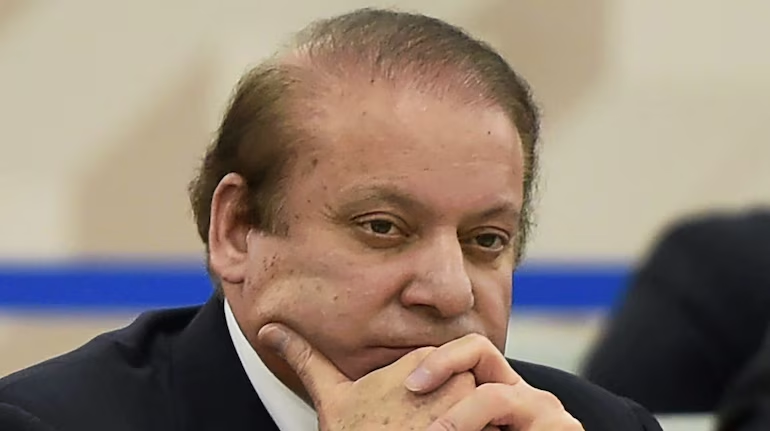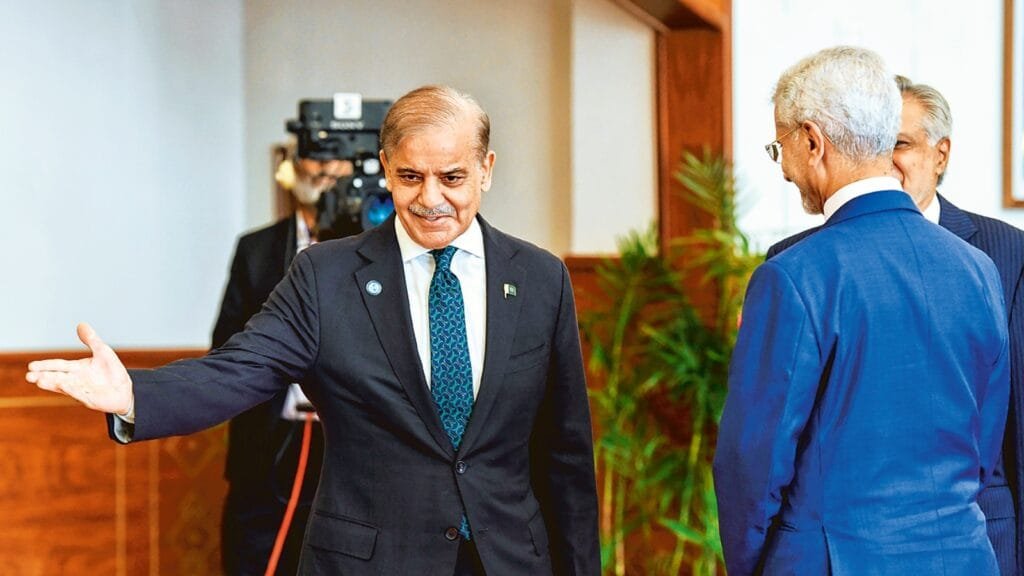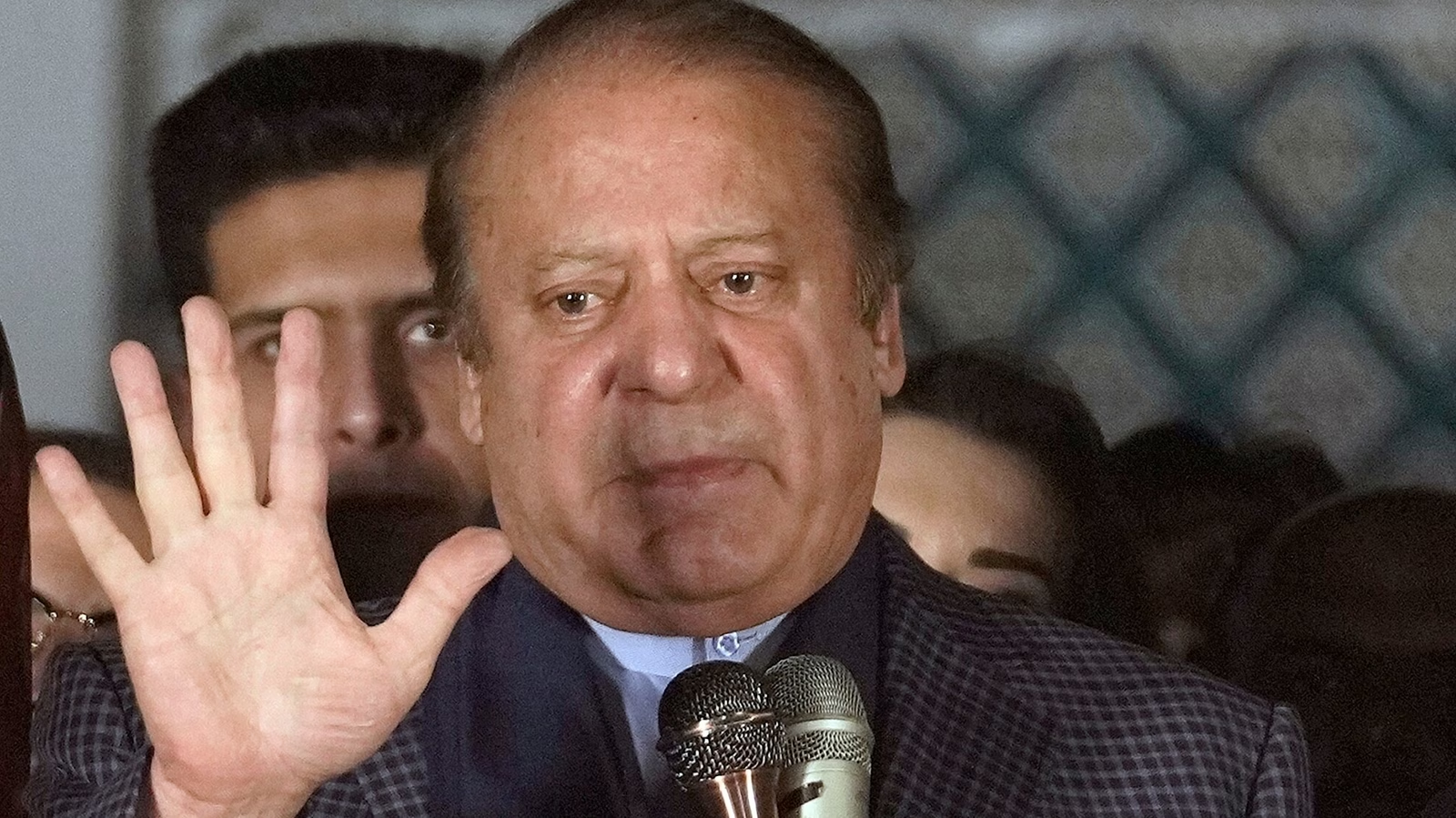Key Highlights:
It has become a landmark moment in South Asian diplomacy since Indian External Affairs Minister S. Jaishankar went to Islamabad, where he was welcomed by former Pakistan Prime Minister Nawaz Sharif, who stated that this visit heralded a “new beginning” in the long tale of disappointed relations between India and Pakistan. Sharp political and security challenges face both these countries at a time when they have been in isolation from the international community and fighting each other intermittently for decades.
Jaishankar’s Visit: A Turning Point
Jaishankar’s appearance at the SCO summit in Islamabad has been the first official visit by an Indian foreign minister to Pakistan in nearly ten years. While the real intent of the visit pertained to multilateral cooperation at the SCO level, symbolism surely did not escape attention. Nawaz Sharif remained particularly optimistic and said that the visit was “a good step toward closing past chapters and laying the groundwork for future cooperation between the two nations.”.

Sharif urged that past wars will not be enough to bring both countries forward and instead look for opportunities of dialogue through peace. “This may be the beginning of defrosting the frozen diplomatic relations between the two nations that have long been marred by controversies,” he said. “It is time to bury the past and start anew,” said Sharif, urging both nations to take the opportunity that Jaishankar’s visit has presented.
Historic Tensions and Missed Opportunities
This historical record is characterized by territorial disputes, mainly relating to Kashmir, and accusations of cross-border terrorism that have contributed towards extremely volatile relations between India and Pakistan. Relations have dramatically deteriorated since the 2019 Pulwama attack as they lead up to India’s airstrikes in Balakot, Pakistan, and the subsequent abolition of Article 370 in Jammu and Kashmir. The aftermath has left nuclear-armed neighbors on the verge of total breakdown of dialogue.

S# The previous reconciliation attempts failed in the context of mistrust and due pressure of domestic politics, which had previously been the case and had occurred even in the early 2000s peace talks. Nevertheless, against this historical backdrop, Jaishankar’s visit would be a turning point, though both sides have ruled out formal bilateral talks on the side of the SCO meeting.
The Nawaz Sharif Outreach and His Vision for Peace
Since Nawaz Sharif, the only keen Pakistani leader who has continuously advocated for peace with India throughout his career, required this incident to revive his dream for better Indo-Pak relations, it is quite a significant gesture on his part, especially since he has just returned to Pakistan’s politics after being exiled.
Sharif believes in economic cooperation, trade, and people-to-people exchanges as the bedrock for enduring peace. In his view, improving Indo-Pak relations is not only important for regional stability but also for bringing ease to economic woes of both the countries. In fact, his call for dialogue remains a reiteration of his previous efforts during his tenure when, as Prime Minister, he met Narendra Modi, the Indian Prime Minister, in 2014.
Challenges Ahead for Indo-Pak Relations
While Jaishankar’s visit and Sharif’s outreach are good diplomatic steps, the road ahead is strewn with challenges. Terrorism, Kashmir, and cross-border militancy continue to feature atop India’s agenda. Key demands include that Pakistan be forced to take decisive steps against the terrorist groups operating from its soil. The contention lies in the fact that Pakistan has been looking to get international mediation on the Kashmir issue, while India perceives the issue to be an internal matter of India.
Resumption of meaningful dialogue entails mutual work on these long-standing issues too. However, Jaishankar’s visit to Islamabad, strictly an affair of the SCO, is a cautious step towards reinitiating the situation. Pakistan has welcomed it as a means of reopening the dialogue process, but political analysts opine that truly fruitful developments depend on how both sides manage to progress from their respective entrenched positions on contentious matters.
Diplomatic Reactions and Regional Implications
The visit of Jaishankar has, therefore, drawn wide attention both from regional and international observers. While India sticks to its stand against cross-border terrorism, Pakistan, meanwhile has been keen on bringing a turnaround in its diplomatic standing at a time of economic turmoil and international scrutiny.
Now, former Jammu and Kashmir Chief Minister Farooq Abdullah and Hurriyat leader Mirwaiz Umar Farooq have said that maybe from this visit, dialogue on the Kashmir issue may take place. But whether this visit will lead to a broad peace initiative remains unclear since no bilateral meeting is scheduled. .
Conclusion: A Moment of Opportunity
Because Nawaz Sharif is talking of a “new beginning,” and Jaishankar’s visit bodes well for a thaw, the world waits nervously for a definitive verdict on whether this diplomatic outreach will really lay the foundations for a more stable Indo-Pak relationship. With decades of hostility hard to forget, it is the smallest undertones of diplomacy that pave the way for cooperation in future. What this visit exactly is-a turning point or merely a missed opportunity remains to be seen and would depend on how both nations manage their complex geopolitical and security challenges down the road.
For Latest News Updates Click Here
